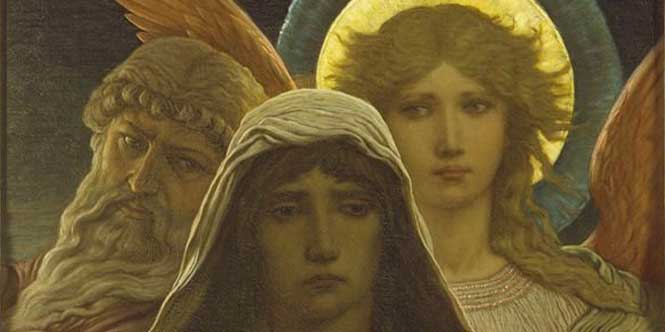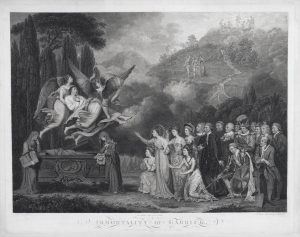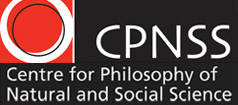In the first in this three-part series, Luc Bovens looks at death, immortality and the worthwhile life.
Eternal Life?
Kant poses three perennial questions: What can I know? What ought I to do? What may I hope? The last question is mainly a question of religion for Kant: do I have any basis to hope for eternal life?
Many people do not hold out any hope for eternal life. Why don’t they? Even if eternal life strikes them as unlikely, they could still hope for it, as one hopes to win the lottery. There is an obvious answer: they just attach no credibility to any talk about the supernatural. The prospect of eternal life is no more likely than the existence of wood nymphs and leprechauns to them. One cannot hope for what one deems to be impossible.
But this is not the only ground why one might not hope for eternal life.
When Einstein was asked whether he believed in immortality, he answered: “No, and one life is good enough for me.” The No-part of Einstein’s answer is a statement of disbelief. But the one-life-is-good-enough part is different. Compare this with a more mundane exchange: “Do you think that there is more beer in the fridge?” “No, and one beer is good enough for me.” The response signals that one simply has no desire for another beer. And that’s how Einstein felt about eternal life.
Why might one not desire eternal life? One may have preferred not to have lived at all. So why would one want to live more, let alone into eternity? There is also a less morose attitude that could underlie not desiring eternal life. One may find beauty in the ephemeral, as one finds beauty in spring flowers. Life is good as it is, and making it last longer, let alone forever, would not make it any better.
Furthermore, some people also refrain from hoping for eternal life because they feel that they have nothing to latch onto and hoping requires that we can engage our imagination somehow.
When I was a child my parents took me to the seaside every summer. I was always hoping for summer to come – the prospect of building sand castles, going for a swim… One year they told me that we would go on vacation to see the pyramids in Egypt the coming summer. I was confident that it would be fun, but I did not do much in the way of hoping that year. I had no idea what such a vacation would be like and hence it did not engage my imagination.
Similarly, immortality is “so huge, so impossible to conceive,” writes Emily Dickinson. If visions of angelic choirs don’t do it for you, then there is no place for the imagination to go to. Also within religious texts we see this tempering of hope: “Who shall bring a man to see what is after him?” asks the Preacher in Ecclesiastes, as he urges us to enjoy our daily toils during our earthly existence rather than be focused on the hereafter.
So then, what is there to hope for, at the end of life, if not eternal life? There are broadly four secular hopes to explore: we hope that our life was worthwhile, we hope to die well, we hope for the future, and we hope that people will hold certain attitudes toward us when we are no more. All these hopes raise a host of philosophical questions. Also, those who do hope for eternal life should find these questions of interest, since a hope for eternal life may coexist and be interwoven with secular hopes. In this post, we will explore the first of these hopes.
Understanding the landscape of secular hopes in the face of death, with its luminous and sinister corners, may be of help to those who are facing death and those who are tasked with aiding others in facing death. Montaigne urges us “to restrain the ass by taking him by the tail” and not to do as the vulgar do, that is, to steer clear of thinking about death. His paraphrase of Cicero sums it up: “To do philosophy is learning to die.”
A Worthwhile Life?
I was talking the other day to a friend who is a retired medical doctor and now spends his days in archives doing genealogy. The only thing in life that he was genuinely proud of, he told me, was having made a particular family tree. Having this to his name gives him a sense of satisfaction. Genealogy never engaged me much, but I have always felt envious of the medical profession when it comes to giving meaning to one’s life. If healing the sick and alleviating the pain of our fellow human beings does not give meaning to life, then what does? So I responded: “What about your patients?” He shrugged his shoulders and responded: “Nothing of that work will remain – most of them are dead by now, all of them will die someday.”
Leaving an Enduring Mark
In old age, it is common to look back and ask: was my life worthwhile? But what sort of things do we invoke to determine whether our lives were worthwhile? My friend has a particular answer in mind. It is the very same answer that Horace gives when reflecting on his Odes. He writes that he has “finished a monument more eternal than brass and taller than the kingly site of pyramids” which will bestow a kind of immortality on him: “Not entirely will I die and a large part of me will evade the Goddess of Burials.” A family tree may not be quite in the same league as the Odes, but the aspiration is similar. What we have to say for ourselves at the end of life is that we have made a mark, that we have achieved something sizeable and grand that we can pass on to posterity.
But what makes an achievement sizeable or grand? What is the measure for this? Think of being successful at raising a family. Some people may shrug their shoulders and say: what’s so big about that – families have been raised literally since the dawn of humankind! But that is certainly setting the bar too high. If what it requires to have a worthwhile life is to do something out of the ordinary, few worthwhile lives would have been lived. We cannot all be special and stand out. Rather, we should be looking for achievements that make a sizeable difference for the better and that this difference is carried forward into a future in which we are no more. Successfully raising a family certainly fits the bill.
Beauty in the Ephemeral
Granted, there is a sense of contentment that comes with being able to do just this. If I were Horace, I would put the tomes I wrote on a shelf next to my death bed and glance at them once in a while. But this certainly cannot be the only way that we can make a case for having lived a worthwhile life. In talking to my friend, I pointed to the sizeable achievement of a life-time of healing and alleviating pain. What does it matter that one outlives one’s patients and that nothing remains? There was much goodness at the time that the service was performed.
And even the arts are not immune from this. There is art that stretches beyond one’s death – think of architecture, music, and literature. This is less so for the performing arts, but still, there are recordings and one makes a contribution to the development of a style. There are no proper recordings of Nijinsky’s ballets, but they still remain a defining moment in the history of dance. But think of a more mundane art form such as DJ’ing. There is great pride in throwing the greatest party, making the dance floor burn until the early hours. Nothing remains, but what does it matter? There is beauty in the ephemeral. And in old age, our DJ may look back and reminisce about all the joy and rapture she brought to so many dance venues. She may say, that is what made it all worthwhile, no less than my friend should look back on a life-time of healing, even though all his patients are long dead and gone.
How Much of a Difference
So, both the enduring and the ephemeral can make life worthwhile. But there is still something else that bothers me: must my achievements be sizeable, must they be grand, however conceived, for a life to be worthwhile? Dickinson famously writes: “If I can ease one life the aching, or cool one pain, or help one fainting robin unto his nest again, I shall not live in vain.” The persona that Dickinson assumes in her poetry did not strive to do grand things. What made her life worthwhile was to make small and simple differences. Helping the proverbial robin makes life no less worthwhile than performing, say, the first heart transplant.
On one conception of assessing whether our lives were worthwhile we ask how much of a difference we have made and to how many people. The grander the achievement the more worthwhile we take our lives to be. But on another conception this is a mistake. The difference that we can make lies in small and simple contributions and that is what makes our lives fully worthwhile. There is no calculus, there is no stacking of good deeds to shore up the edifice of a worthwhile life. Just like there is beauty in the ephemeral, there is beauty in what is small and simple.
We have seen examples of the grand and enduring (Horace), of the grand and ephemeral (the DJ), and of the small and ephemeral (the fainting robin). What about the small and the enduring? There is a Chinese story of an old man who wanted to move a mountain that was blocking the sun. When a wise man mocks him while hauling wheelbarrow loads of stones, the old man responds that his descendants will carry on his work and that the mountain will eventually be moved. Scientists may see their professional life in this light—their contributions may have been small, but they are worthwhile because they are part of a larger endeavour and this larger endeavour is an enduring pursuit.
Embodying a Principle
So both grand and simple achievements can make life worthwhile. But one last thing still irks me. What is it with this focus on achievements and contributions, on making a mark, on making a difference? John Keats contracted tuberculosis in his mid-twenties and realised that an early death was awaiting him. In one of the letters to his beloved Fannie Brawne he reports an internal dialogue: “‘If I should die,’ said I to myself, ‘I have left no immortal work behind me – nothing to make my friends proud of my memory – but I have loved the principle of beauty in all things, and if I had had time I would have made myself remembered.’” Keats thought that due to his young age, he had achieved too little to leave a mark in the literary landscape. But he finds consolation in the fact that he has lived his life in a particular mode – in accordance with an aesthetic principle.
People may find contentment in having lived their lives in a particular mode. They have lived their lives guided by an ideal of integrity, honesty, love, service etc. They consider their lives worthwhile precisely because they lived in accordance with ideals that they subscribe to or identify with. What makes life worthwhile is that it was lived as it ought to be lived.
The Role of Hope
So, what makes life worthwhile retrospectively? Here is the landscape: there are modes of living and there are achievements, both enduring and ephemeral, both grand and simple. People have different conceptions of what would make their lives worthwhile. There may be a match between their conception and the way they view their own lives. If so, then this will be a source of contentment. Or there may be a mismatch. They may have a book-shelf of influential tomes to show for and yet feel that life was not lived well because they sense a lack of integrity. They may have a life of caring and service behind them and yet feel that nothing meant much because there is nothing of them that projects into the future. But what is the place of hope when it comes to our concern with life being worthwhile?
If one aims for enduring achievements, it is good to remember that the future is fickle and will be even more fickle in one’s absence. Poets come and poets go as literary canons are rewritten. Family trees are unfolded with great interest only to end up in dusty attics never to surface again. There is always much room for doubt that our contribution will stand the test of time. And with doubt comes hope. We can at best hope that our lives were worthwhile – time shall be our judge.
When we are focused on the here and now, there is less room for doubt. The party our DJ threw was the bomb and only a bore could deny it. Dickinson’s robin was saved from the claws of the cat. But we may still question whether we genuinely made a contribution. I remember a psychiatrist telling me a story about a patient who overcame schizophrenia in his care. At the end of the story he looked at me and said: “Did I do that? I don’t know.” We may question the outcome and with each success there are typically unintended and yet unknown consequences. The Gates Foundation dispensing malaria nets was hugely successful, until poor Malawi fishermen starting using the nets for fishing, thereby depleting and polluting the lake. And so also when we are focused on ephemeral achievements there is a place for hope.
Insofar as we strive to live life in a particular mode, we may have doubts because we are not fully transparent to ourselves. An artist may hope that she lived a life of aesthetic creation, but at the same time fear that she was a phoney at heart. A philanthropist may hope that she was motivated by empathy, but at the same time fear that she really was after fame and recognition. A politician may hope that she has lived a life of integrity but at the same time fear that self-interest was often no less of a driving force.
No matter what we think a worthwhile life is all about, there is room for doubt. In the face of this doubt, modesty requires that we say, I hope that my life was worthwhile, rather than, I know that my life was worthwhile.
By Luc Bovens
The Last Hope Part 2 →
Luc Bovens is is currently Professor in the Department of Philosophy, Logic and Scientific Method and will be moving to the Department of Philosophy in the University of North Carolina at Chapel Hill in January 2018. His areas of research are moral psychology, philosophy of public policy, rationality, and formal epistemology.
Further Reading
- Luc Bovens, “The Value of Hope”, Philosophy and Phenomenological Research, 1999.
- David Rönnegard, “An Atheist in a Fox-Hole”, Philosophy Now, 2017.
- Samuel Scheffler, Death and the Afterlife, 2013.
- Bernard Williams, “The Makropulos Case: Reflections on the Tedium of Immortality”, Problems of the Self, 2009 [1973].
Featured image: The Sorrowing Soul Between Doubt and Faith by Elihu Vedder, c. 1887. Public Domain






